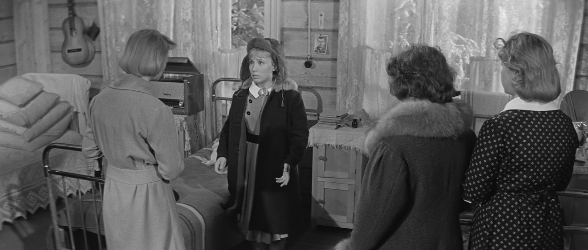Or, to give it its original Russian title, Operatsiya Y I Drugie Priklyuchenia Shurik.
And, before you get intimidated by that rather ponderous title, a little carrot that I will dangle: this is a movie that’s recommended for those times when you’re feeling drained and overworked and your brain needs time off. It happens to me every now and then, when trying to relax by watching a film is not enough; the film too has to be something that I don’t need to think about: a film that I can just sit back and enjoy. This is that film.
Operation Y (which is how I will refer to it; the entire title is just too long) is about the eponymous Shurik (Aleksandr Demyanenko), a young college student at a polytechnic institute. In his spare time, Shurik works at a construction site; otherwise he’s a nerdy, earnest student, so focused on his studies that he mostly cannot see beyond his books…
Continue reading





